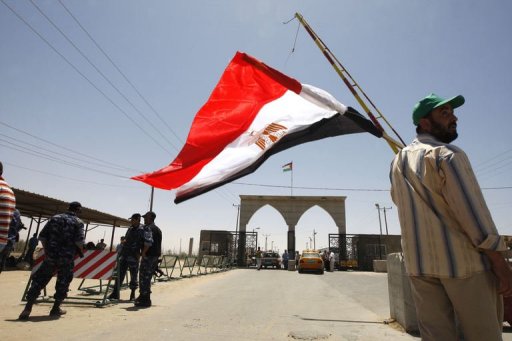
After standing at the Rafah border crossing on Wednesday, Ahmed Abo Thira’, a Sinai activist, noticed nothing had changed. Droves of Palestinians were not being ushered into Egypt. The same trickle of Palestinians coming through the border went through the same procedures and the same paperwork as they have always had since the Gaza Blockade of 2007.
“I’ve just been there, the procedures used with Palestinians are the same as they were last week , last month even. Nothing has changed,” Abo Thira’ said not far from the Rafah border. His account drastically differs from thousands of headlines this week about policy changes at the border that have granted Palestinians much easier access to Egyptian soil. The truth, he says, is that a minor change is being heralded as a significant policy adjustment.
Many of the sources of the stories have been unnamed officials, making it harder to verify if the policy directive to loosen the restrictions on those crossing at the border is actual policy or an ‘unofficial’ directive from the military. The military enforces the border crossing, and military intelligence officials are barred from speaking to the press, further compounded the issue.
“If the border crossing had been opened, there would have been unbelievable crowds but the numbers today were normal,” said Abo Thira’. He said the only changes to the border policy system seems to be that Palestinians can receive an advanced visa from the Mogamma, and that Palestinians arrested by Egyptian authorities are quickly ushered to the crossing but allowed to spend three days in Al-Arish until they are back in Gaza.
The Israeli Haaretz newspaper cited additional restrictions were lifted by Egyptian authorities, which included shortening the list of people who are not allowed inside Egypt and allowing people to enter without an identity card if they accompanied a family member who was in possession of an identity card.
“The press said the border has been opened. The border is the same as it has always been,” Major General Marwan Mostafa, official spokesperson of the Ministry of Interior. “It is open with certain conditions at Rafah.”
These conditions require Palestinian males between the ages of 18 to 40 to get a visa before they are allowed into Egypt.
The number of Palestinians allowed to cross into Egypt is 1,500 per day, an increase from 1,000 yet the Palestinians do not think the number is high enough, according to AFP. While Haaretz also reported an increase in the number of Palestinians allowed to cross over, the Israeli news service reported the number had been raised from 500 to 1,000. Both do not cite sources.
This news comes on the heels of the significant visit of Ismail Haniyah to Egypt on Thursday. Haniyah, the Hamas Prime Minister of the Gaza Strip, has called on Egypt to lift the blockade on Gaza repeatedly in the past. He has crossed into Egypt using the Rafah crossing along with several other officials today, said Ma’an News Agency.
Earlier this month, Haniyah said that he expects that Egypt will no longer be part in the blocking of Gaza, said Reuters.
Following President Mohamed Morsy’s victory, many in Gaza were hoping for drastic changes in Egypt’s policy towards Israel, particularly since Hamas is an affiliate organization to the Muslim Brotherhood. Ousted Egyptian President Hosny Mubarak had cooperated with Israel to impose the siege on Gaza which entered its fifth year last June.



